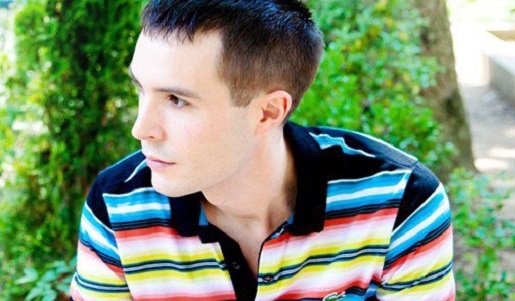‘In a world of gay teenage isolation, LGBT visibility can be life-saving’
By Will Stroude

During my GCSEs year I got a Saturday job at my sleepy Somerset town’s library. Unfortunately it coincided with me exploring both my identity and £1 vodka shots on Friday nights in Bristol, so was never destined to be an eternal marriage. However when struggling through the hungover shelving, I began to discover just how much gay literature there was available on these particular shelves. One of those stock-ordering colleagues evidently had an interest.
I checked all the books out, primarily in the hope they’d have explicit gay sex scenes. Yet I also read them from cover to cover, and in retrospect I feel they helped in my fledgling understanding of queer male identity. Albeit by a weird menagerie of choice: from classics like the doomed Parisian love affair of Giovanni’s Room, to Dennis Cooper’s dark perversion, to pure fantasia like Lust, where the hero can have sex with any man in the world.
Yet the book that offered me the greatest relief, at one of the most turbulent times of my life, was Jamie O’Neill’s At Swim, Two Boys.
It told the story of two boys in Ireland 1916: Jim and Doyler. One is a rough working-class rentboy, and strong swimmer; the other a shopkeeper’s son, and scared of the sea. As Doyler teaches Jim to swim, a friendship develops that eventually becomes love. A love presented presented by O’Neill as completely natural. Where many other writers depicted being gay as lurking within the straight shadows, O’Neill defeated the very nature of shame.
This concept was unbelievably empowering to my sixteen-year-old self. I’ve returned to this book at different times in my life, and always found in it hope. Yet now at 29, I find myself preoccupied by the third main character: a 28-year-old man named MacMurrough. Exiled for ‘gross indecency’ with a chauffeur mechanic, he watches the boys swim. And at one point he considers how he’s always had a sense of himself as an adolescent, never quite a man.
Type in ‘gay men perpetual adolescence’ to Google and you get just under 9.5 million results. I feel it’s easy for us to stay adolescent: on one level, whilst we have same-sex marriage, we’re not expected to take on the ultimate ‘adult responsibility’ of family. This gives us freedom, but within a fabric of heteronormative society woven around the family unit, it makes many of us still fag burns. And if you’re burning, you might as well flame on sambuca or the glass pipe.
On a secondary level: I never got a chance to explore my emotional truth in my teens. I feel strongly now that hiding away your true self in your adolescence stunts your chance to emotionally mature as a person; theories explored in Matthew Todd’s Straight Jacket. I self-taught myself everything I lusted to know about the physical side of being gay – because, you know, where there’s a will, there’s a willy – but the chance to learn intimacy was void.
That’s why it’s inconceivable to me that a book like At Swim, Two Boys is not stocked in every school library – although, of course, I never found it in my own school library. The arts cannot provide a replacement for reality; reading that book was not the equivalent of having a boyfriend with whom to understand the beauty of gay male relationships. But it told me that they could exist, with all the truth, love and pride I’d never been taught I deserved.
That did more for my mental wellbeing than a thousand PSHE lessons too cowardly to reference my existence. Our LGBT arts are our chance to reflect and access our emotional truth. As gay artist Francis Bacon once said: “art should make you feel the world more strongly.” So when you see a play like Holding the Man, or hear The Irrepressibles’ music, or watch a film like Closet Monster, that’s an affirmation of our belonging and place.
It’s part of why I am a writer myself. In mainstream media, there still seems to be a fear that LGBT content can’t appeal to a mass audience. Yet gay people have been finding meaning in straight love stories for years. Surely it can work vice versa? Yes. Like or loathe his cover, Callum Scott’s ‘Dancing On My Own’ is an explicitly LGBT song. Perhaps as a society we’re beginning to realise that emotional truth appeals not just to our sexualities, but our humanity.
Let’s Talk About Gay Sex & Drugs – Arts is at Ku Klub, 30 Lisle Street, WC2H 7BA from 6.30pm on Thursday 6th October. Free entry, and all welcome, as always.
Words: Patrick Cash
More stories:
Watch the trailer for stunning new coming-of-age film ‘Moonlight’
These two newly-married grooms are serious first dance goals – WATCH
